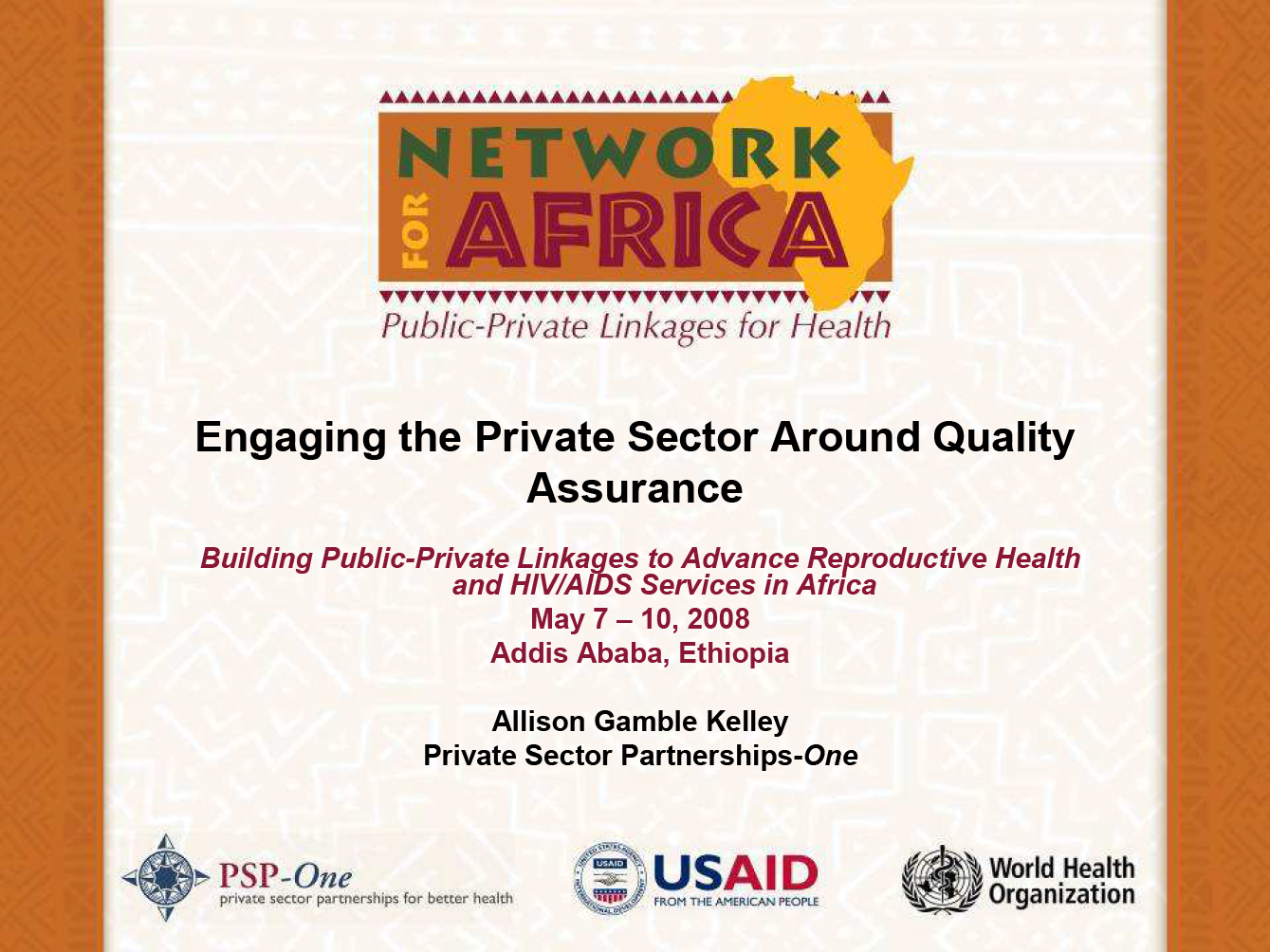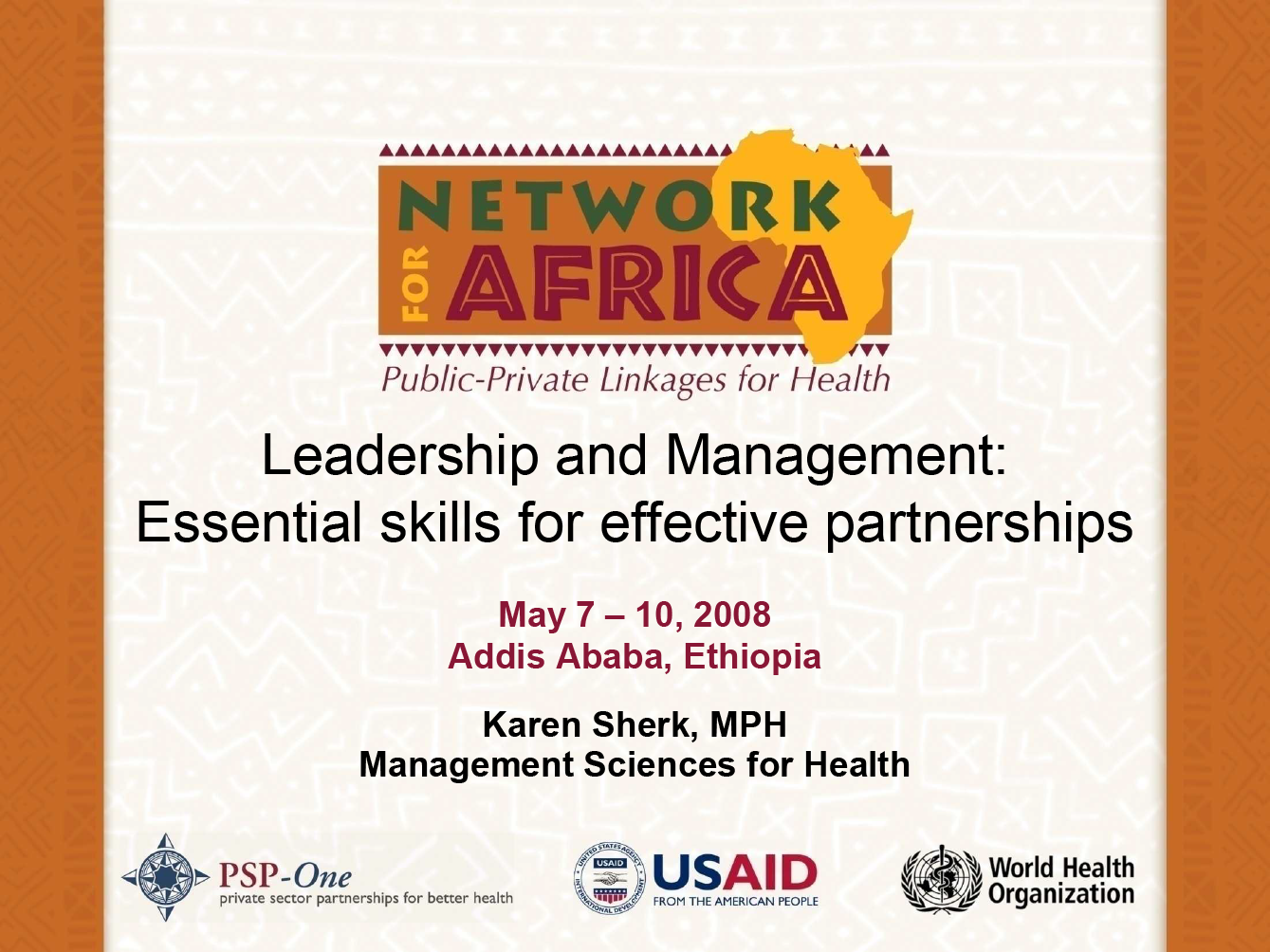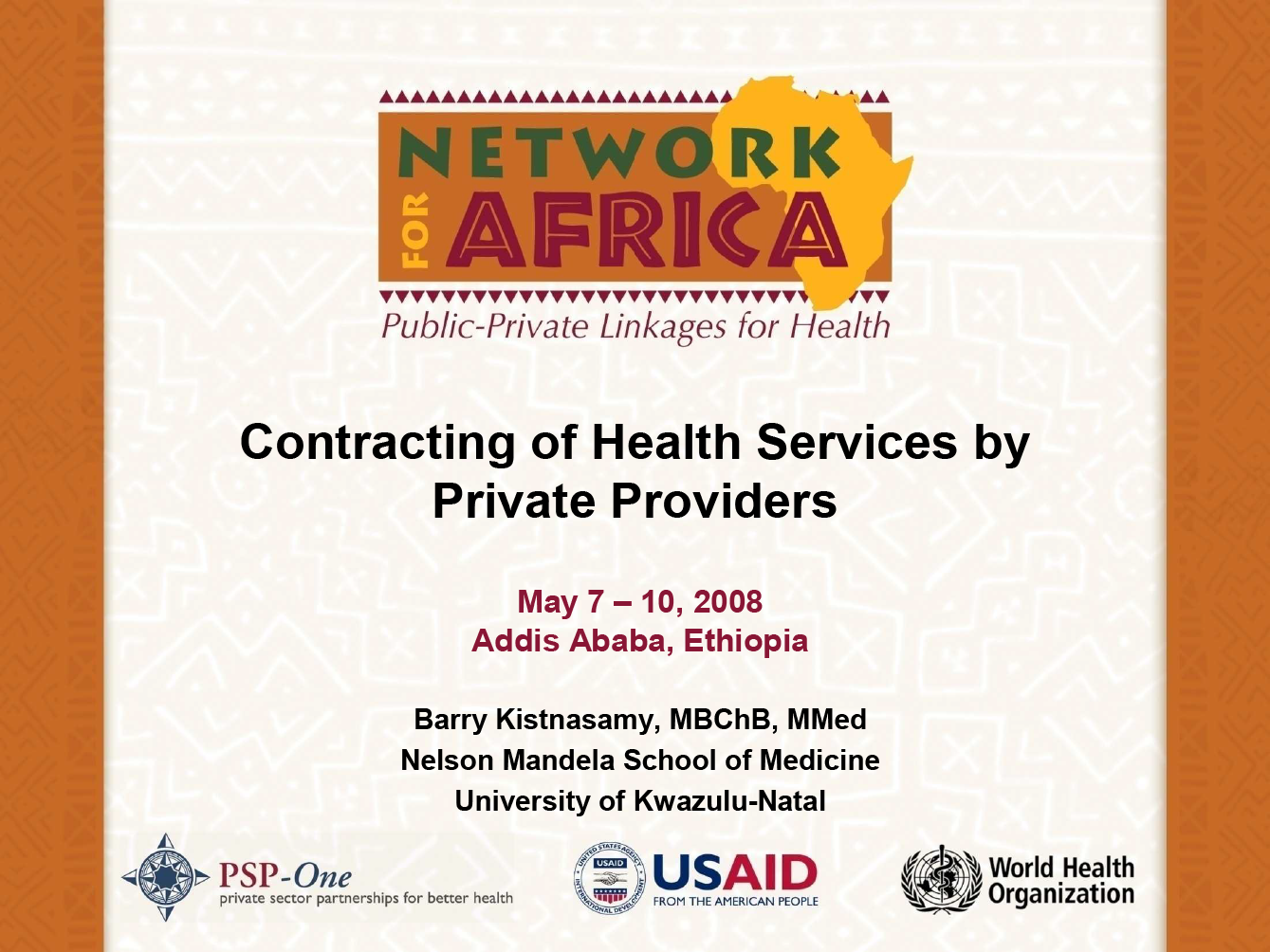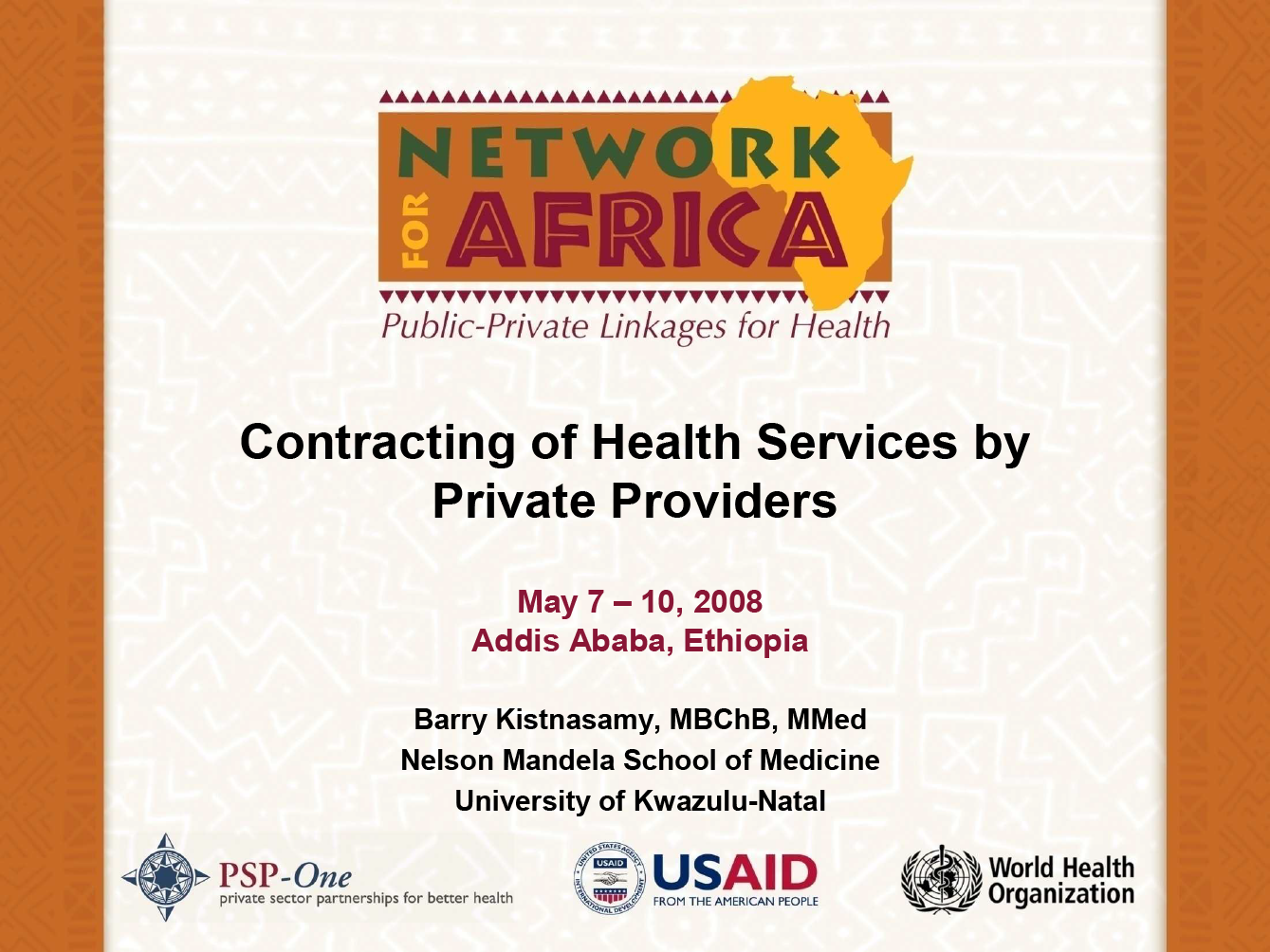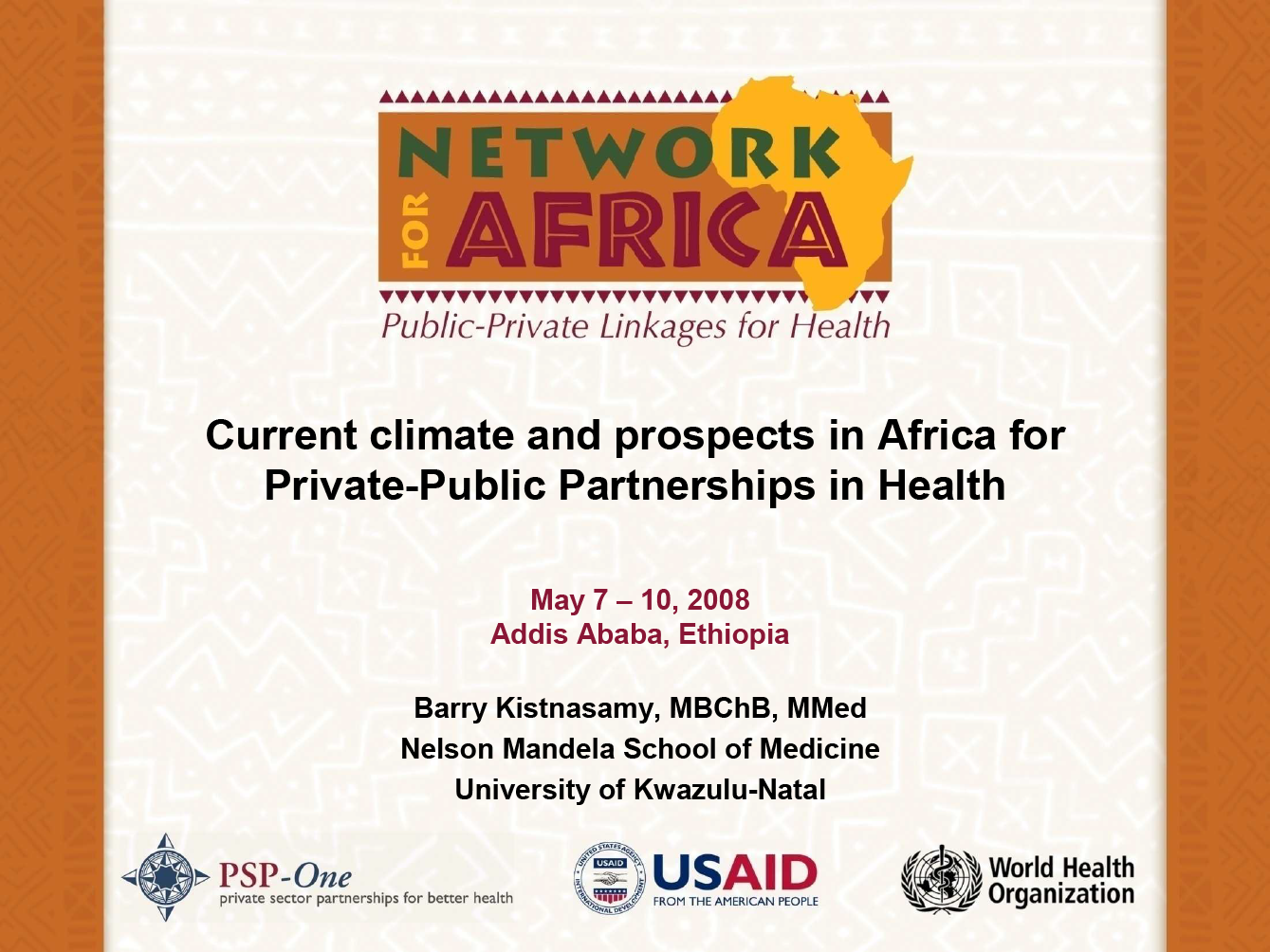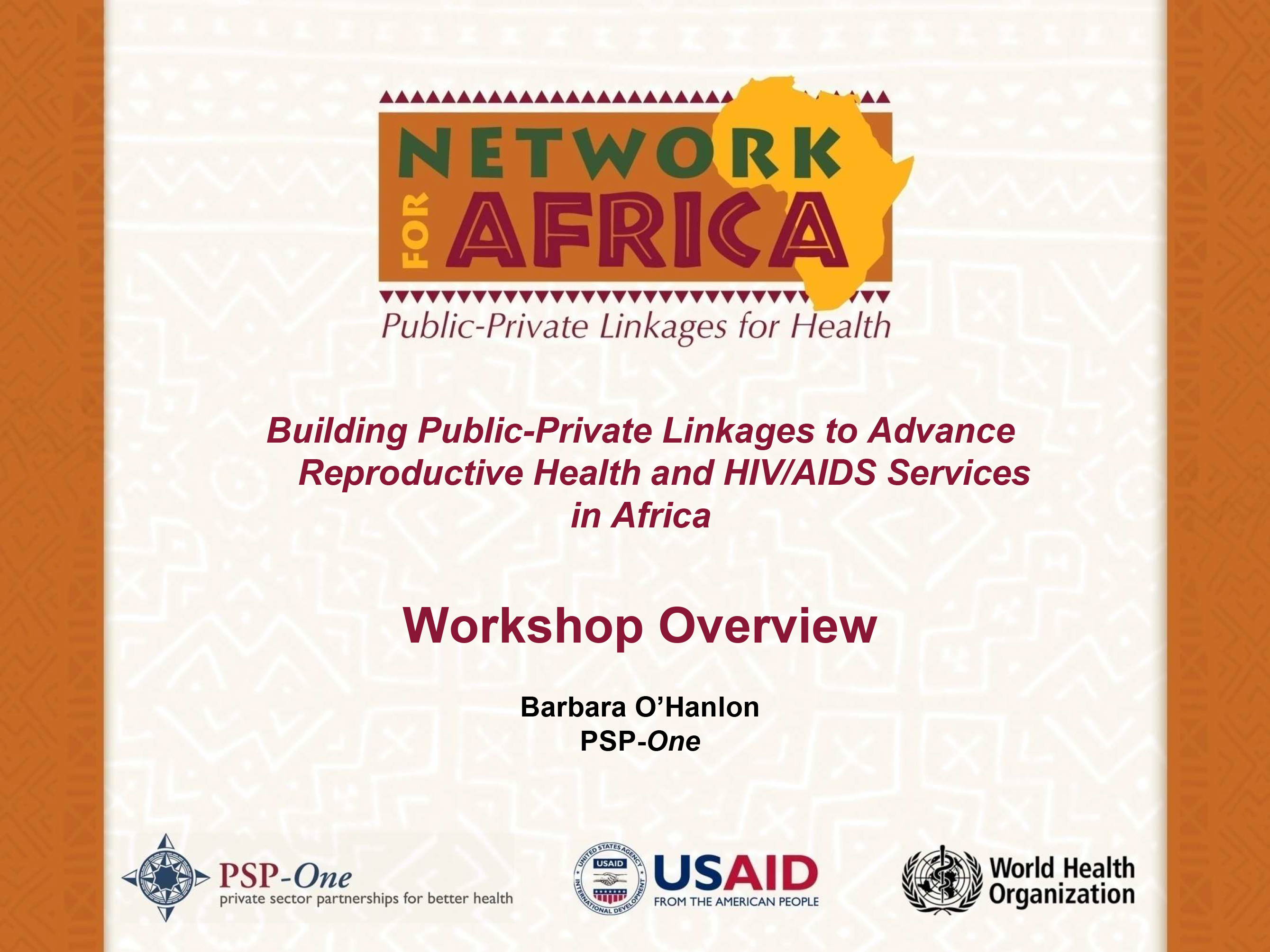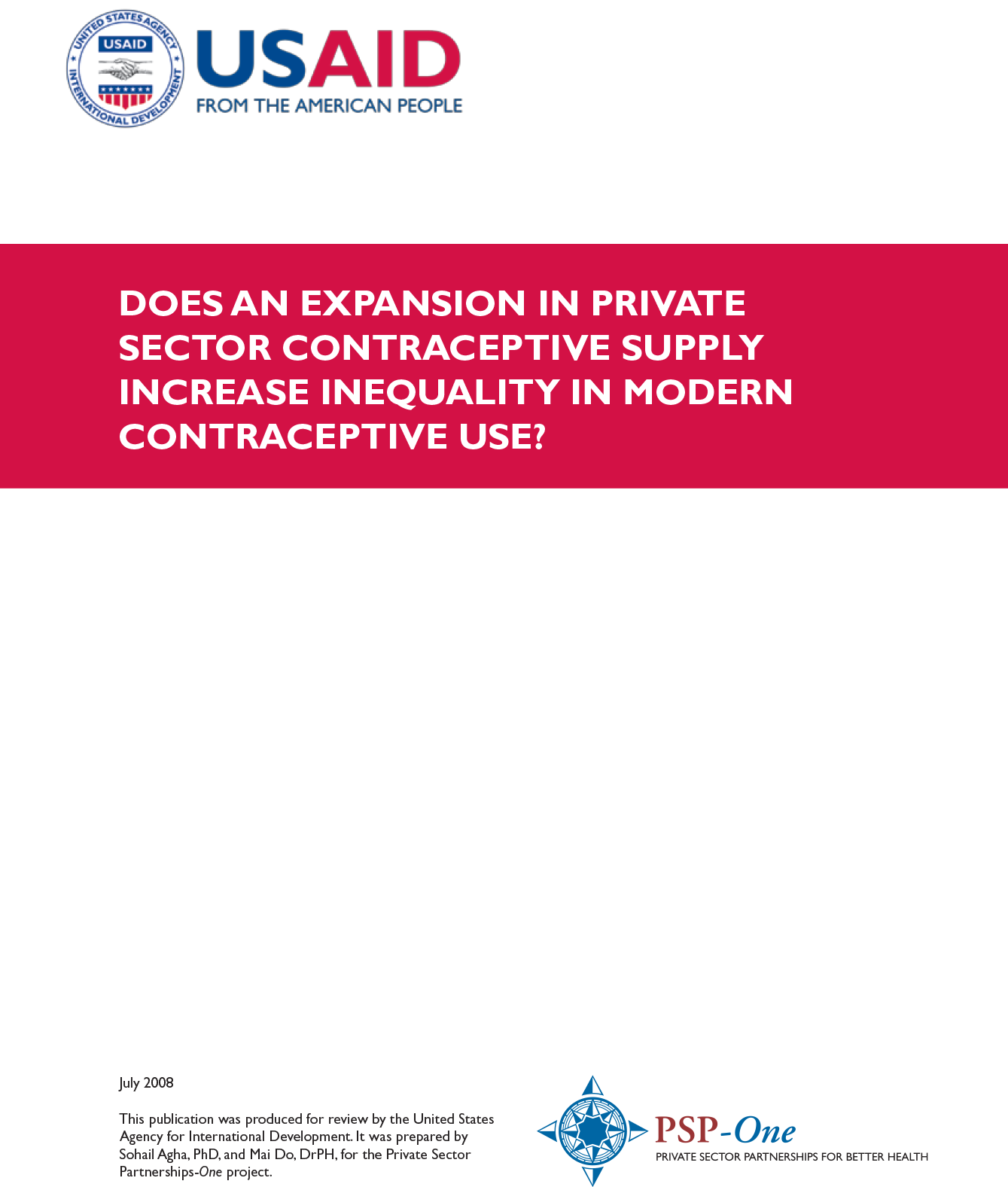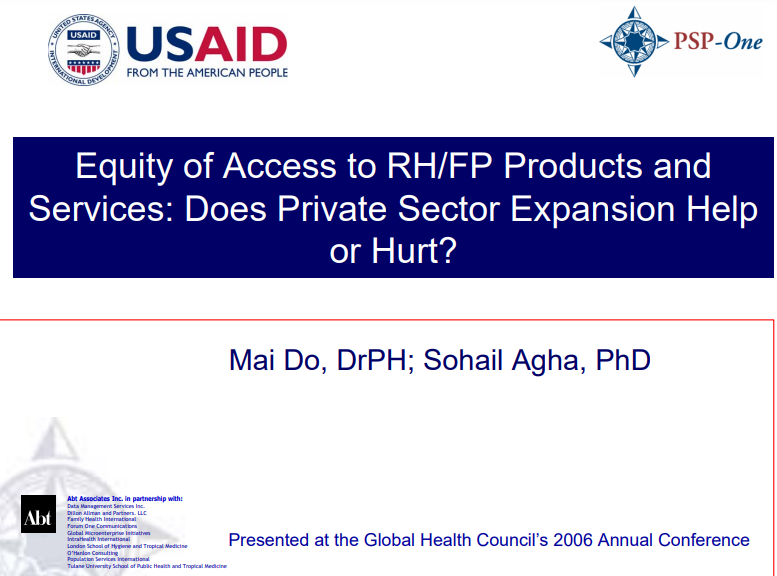
Resource Library
Private Sector Role in Health Supply Chains
Strong supply chains are essential to effective health care delivery in all sectors – public, faithbased, employer-provided and private. In OECD countries, supply chains rely heavily on the private sector for supply, distribution and provision of key auxiliary services even when the health system itself is largely or exclusively public sector. These supply chains work quite well in ensuring consistent availability of high quality product. In contrast, health supply chains in many Low and Middle Income Countries (LMICs) perform poorly and have less private sector involvement. This observation leads us to ask: How might a greater role for the private sector and/or greater leveraging of private sector supply chain best practices improve health supply chains in LMICs? This study has two objectives: 1) to provide an understanding of the current and potential role for the private sector in health supply chains; and 2) to provide recommendations regarding how national governments, policymakers, private investors, international donors and foundations should think about investment in private sector health care initiatives for LMICs. We define health supply chain as the network of entities that plan, source, fund, and distribute products and manage associated information and finances from manufacturers through intermediate warehouses and resellers to dispensing and health service delivery points. This paper puts a primary focus on the activities of the for-profit private sector and the deployment of for-profit best practices by other sectors in the health supply chain. It is informed by in-depth case studies of health supply chains in Ghana and Zambia, as well as interviews of over 40 supply chain and health experts in 12 countries about private sector initiatives in those countries. Over 40 private sector-oriented initiatives which seek to bring new models to LMIC supply chains were identified and reviewed. The major findings are as follows:
Resource Type : Report
Country :
Year : 2008-12-11T14:30:00
Language : English
Project : SHOPS

Resource Library
Engaging the Private Sector Around Quality Assurance
The Abt Associates-led PSP-One project co-sponsored a workshop with the World Health Organization's Department of Reproductive Health and Research (WHO/RHR) in Addis Ababa, Ethiopia May 7 – 10, 2008. Entitled "Network for Africa: Building Public-Private Linkages to Advance Priority Health Services," the four-day workshop aimed to develop national capacity to design and manage partnerships with private sector stakeholders to address reproductive health/family planning and HIV/AIDS-related health challenges. Participating countries included Ethiopia, Ghana, Kenya, Nigeria, Tanzania, and Uganda. The workshop curriculum was based on a World Bank Institute course on public policy for the private sector, which was revised for the Africa context and updated to reflect current trends in private sector provision of health. The following is a presentation on quality assurance in the private sector by Allison Gamble Kelley, of PSP-One.
Resource Type : Presentation
Country : Ethiopia, Ghana, Kenya, Namibia, Tanzania, Uganda
Year : 2008-08-14T11:30:00
Language : English
Project : SHOPS

Resource Library
Leadership and Management : Essential Skills for Effective Partnerships
The Abt Associates-led PSP-One project co-sponsored a workshop with the World Health Organization's Department of Reproductive Health and Research (WHO/RHR) in Addis Ababa, Ethiopia May 7 – 10, 2008. Entitled "Network for Africa: Building Public-Private Linkages to Advance Priority Health Services," the four-day workshop aimed to develop national capacity to design and manage partnerships with private sector stakeholders to address reproductive health/family planning and HIV/AIDS-related health challenges. Participating countries included Ethiopia, Ghana, Kenya, Nigeria, Tanzania, and Uganda. The workshop curriculum was based on a World Bank Institute course on public policy for the private sector, which was revised for the Africa context and updated to reflect current trends in private sector provision of health. The following is a presentation on effective public private partnerships, by Karen Sherk, MPH Management Sciences for Health
Resource Type : Presentation
Country : Ethiopia, Ghana, Kenya, Namibia, Tanzania, Uganda
Year : 2008-08-14T11:15:00
Language : English
Project : SHOPS

Resource Library
Contracting of Health Services by Private Providers
The Abt Associates-led PSP-One project co-sponsored a workshop with the World Health Organization's Department of Reproductive Health and Research (WHO/RHR) in Addis Ababa, Ethiopia May 7 – 10, 2008. Entitled "Network for Africa: Building Public-Private Linkages to Advance Priority Health Services," the four-day workshop aimed to develop national capacity to design and manage partnerships with private sector stakeholders to address reproductive health/family planning and HIV/AIDS-related health challenges. Participating countries included Ethiopia, Ghana, Kenya, Nigeria, Tanzania, and Uganda. The workshop curriculum was based on a World Bank Institute course on public policy for the private sector, which was revised for the Africa context and updated to reflect current trends in private sector provision of health. The following is a presentation on Contracting Health Services by Private Providers, by Barry Kistnasamy, MBChB, MMed Nelson Mandela School of Medicine University of Kwazulu-Natal.
Resource Type : Presentation
Country : Ethiopia, Ghana, Kenya, Namibia, Tanzania, Uganda
Year : 2008-08-14T11:00:00
Language : English
Project : SHOPS

Resource Library
Financing Mechanisms to Mobilize the Private Health Sector
The Abt Associates-led PSP-One project co-sponsored a workshop with the World Health Organization's Department of Reproductive Health and Research (WHO/RHR) in Addis Ababa, Ethiopia May 7 – 10, 2008. Entitled "Network for Africa: Building Public-Private Linkages to Advance Priority Health Services," the four-day workshop aimed to develop national capacity to design and manage partnerships with private sector stakeholders to address reproductive health/family planning and HIV/AIDS-related health challenges. Participating countries included Ethiopia, Ghana, Kenya, Nigeria, Tanzania, and Uganda. The workshop curriculum was based on a World Bank Institute course on public policy for the private sector, which was revised for the Africa context and updated to reflect current trends in private sector provision of health. The following is a presentation on financing mechanisms by Allison Gamble Kelley, of O'Hanlon Consulting.
Resource Type : Presentation
Country : Ethiopia, Ghana, Kenya, Namibia, Tanzania, Uganda
Year : 2008-08-14T10:15:00
Language : English
Project : SHOPS

Resource Library
Current Climate Prospects in Africa for Public-Private Partnerships in Health
The Abt Associates-led PSP-One project co-sponsored a workshop with the World Health Organization's Department of Reproductive Health and Research (WHO/RHR) in Addis Ababa, Ethiopia May 7 – 10, 2008. Entitled "Network for Africa: Building Public-Private Linkages to Advance Priority Health Services," the four-day workshop aimed to develop national capacity to design and manage partnerships with private sector stakeholders to address reproductive health/family planning and HIV/AIDS-related health challenges. Participating countries included Ethiopia, Ghana, Kenya, Nigeria, Tanzania, and Uganda. The workshop curriculum was based on a World Bank Institute course on public policy for the private sector, which was revised for the Africa context and updated to reflect current trends in private sector provision of health. The following is a presentation on the current climate for Public Private Partnerships in Health in Africa by Barry Kistnasamy, MBChB, MMed Nelson Mandela School of Medicine University of Kwazulu-Natal .
Resource Type : Presentation
Country : Ethiopia, Ghana, Kenya, Namibia, Tanzania, Uganda
Year : 2008-08-13T15:30:00
Language : English
Project : SHOPS

Resource Library
Building Public-Private Linkages to Advance Reproductive Health and HIV/AIDS Services in Africa
The Abt Associates-led PSP-One project co-sponsored a workshop with the World Health Organization's Department of Reproductive Health and Research (WHO/RHR) in Addis Ababa, Ethiopia May 7 – 10, 2008. Entitled "Network for Africa: Building Public-Private Linkages to Advance Priority Health Services," the four-day workshop aimed to develop national capacity to design and manage partnerships with private sector stakeholders to address reproductive health/family planning and HIV/AIDS-related health challenges. Participating countries included Ethiopia, Ghana, Kenya, Nigeria, Tanzania, and Uganda. The workshop curriculum was based on a World Bank Institute course on public policy for the private sector, which was revised for the Africa context and updated to reflect current trends in private sector provision of health. The following is a workshop overview, presented by Barbara O'Hanlon.
Resource Type : Presentation
Country :
Year : 2008-08-13T15:15:00
Language : English
Project : SHOPS

Resource Library
Does an Expansion in Private Sector Contraceptive Supply Increase Inequality in Modern Contraceptive Use?
Objective To determine whether an expansion in private sector contraceptive supply is associated with increased socioeconomic inequality in the modern contraceptive prevalence rate. Methods Multiple rounds of Demographic and Health Surveys data were analyzed for five countries that experienced an increase in the private sector supply of contraceptives: Morocco, Indonesia, Bangladesh, Kenya, and Ghana. Information on household assets and amenities was used to construct wealth quintiles. A concentration index, which calculates the degree of inequality in contraceptive use by wealth, was calculated for each survey round. Findings Socioeconomic inequality in the MCPR (MCPR inequality) declined in Morocco and Indonesia, where substantial expansion in private sector contraceptive supply occurred. In both countries, poor women continued to rely heavily on public sector supplied contraceptives even as they increased use of contraceptives obtained from the private sector. A marginally significant decline in MCPR inequality occurred in Bangladesh, where the increase in private sector supply was modest. The lack of significant overall change in MCPR inequality in Kenya disguised trends moving in opposite directions in urban and rural areas. In urban areas of Kenya, MCPR inequality declined as low-income urban women increased use of contraceptives obtained primarily from the public sector. In rural Kenya, MCPR inequality increased. This increase was associated with a decline in the supply of contraceptives by the public sector and by nongovernmental organizations to the poorest, rural, women. Conclusions The study found no support for the hypothesis that an increase in private sector contraceptive supply leads to higher socioeconomic inequality in the MCPR. The study findings suggest that continued public sector supply of contraceptives to the poorest women protects against increased MCPR inequality.
Resource Type : Report
Country : Bangladesh, Ghana, Kenya, Morocco
Year : 2008-08-05T12:00:00
Language : English
Project : SHOPS

Resource Library
"Blue": Segmenting in the Oral Contraceptive Market in Ghana
A narrated presentation contributed by Richard Burns from the PSP-One Social Marketing e-Conference held on March 10-15, 2008.
Resource Type : Presentation
Country : Ghana
Year : 2008-04-25T13:00:00
Language : English
Project : SHOPS

Resource Library
Equity of Access to RH/FP Products and Services: Does Private Sector Expansion Help or Hurt
PowerPoint presentation from GHC session B3: Who is Being Served? Results of Public-Private Partnerships on Equity of Access.
Resource Type : Presentation
Country : Bangladesh, Morocco
Year : 2006-06-26T11:45:00
Language : English
Project : SHOPS
Pagination
- Previous page
- Page 6
- Next page



